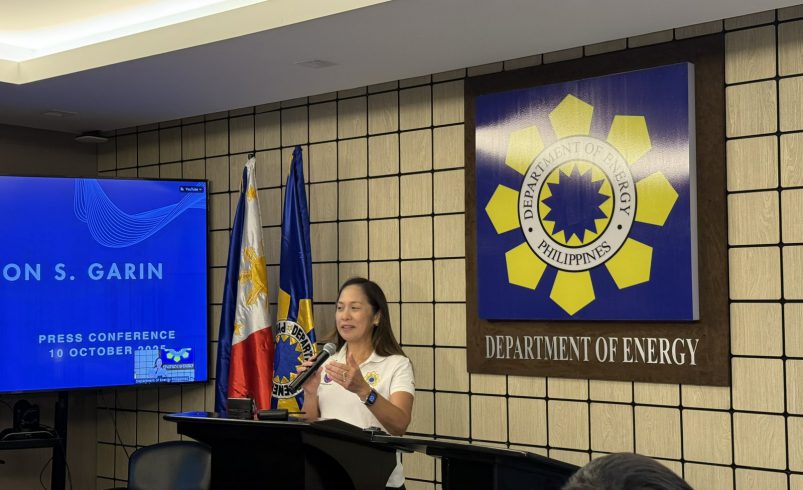DOE unveils key energy updates on gas, renewables, EVs, and grid resilience
- October 10, 2025
- 0

The Department of Energy (DOE) presented major updates across the country’s energy landscape. They covered i
DOE Undersecretary Alessandro O. Sales confirmed that the Malampaya Phase 4 Project is now in its pre-drilling stage, with the spud-in targeted by mid-2026. The three planned wells — Camago 3, Malampaya East 1, and Bagong Pag-asa 1 — are expected to yield between 210 and 250 billion cubic feet (BCF) of recoverable gas. Sales described indigenous gas as the country’s “anchor fuel” for the transition decade, bridging the phaseout of coal and the expansion of renewable energy. He also said around PHP3 billion in royalties from Malampaya operations have already been remitted to the national treasury this year.
According to Sales, the Phase 4 development will serve as a benchmark for future gas exploration in Recto Bank and Northwest Palawan, with foreign participation still permitted through joint ventures in line with Philippine ownership laws. He added that the project will follow stricter environmental standards, including real-time emissions monitoring during drilling operations.
Meanwhile, DOE Undersecretary Mylene C. Capongcol announced that the department will hold a special Green Energy Auction (GEA) in January 2026 dedicated to waste-to-energy (WTE) projects sourcing feedstock from Metro Manila and other Highly Urbanized Cities. She said the DOE is coordinating with the National Solid Waste Management Commission and the Department of Environment and Natural Resources to align feedstock certification and environmental clearance processes. A follow-up auction round is planned for mid-2026, covering WTE and biomass projects in other regions. Capongcol added that pilot WTE facilities could become operational by late 2027, contributing to cleaner energy generation and improved waste management.
DOE Energy Utilization Management Bureau (EUMB) Director Patrick T. Aquino also clarified that all categories of electric vehicles — including battery, hybrid, plug-in hybrid, and light EVs — remain automatically exempt from the number-coding scheme for eight years under the Electric Vehicle Industry Development Act (EVIDA) or Republic Act 11697. Aquino explained that a recent advisory by the Philippine National Police–Highway Patrol Group caused confusion among motorists and enforcers. To address this, the DOE will issue a Joint Administrative Circular with the Land Transportation Office, the Metropolitan Manila Development Authority, and the Department of the Interior and Local Government by the end of 2025. He said the DOE will also roll out an information campaign for LGUs and law enforcers and introduce a QR-code verification system on the EV Industry Portal to identify registered EVs.
Undersecretary Mario C. Marasigan reported that the DOE has activated its Energy Resiliency Task Group to oversee grid restoration efforts following the recent earthquakes in Cebu and the power outage in Masbate. He said that power supply and transmission services were normalized within hours through the rapid response of the National Grid Corporation of the Philippines (NGCP) and distribution utilities such as VECO, CENECO, and MASELCO. Marasigan noted that the event highlighted the resiliency of the Visayas grid and said the DOE would use the incident as a case study under its Energy Resiliency Policy and Action Plan to enhance coordination during future emergencies.
Sales also shared new details about the eight Petroleum Service Contracts (PSCs) awarded earlier this month, which are projected to bring in about USD 207 million in exploration investments. He said drilling preparations for select blocks in Cagayan and Palawan are expected to begin in the second half of 2026, pending seismic and environmental assessments. The DOE and the Bangsamoro Autonomous Region in Muslim Mindanao will also form a joint monitoring committee to oversee the Sulu Sea service contracts, marking the first energy collaboration betw
The DOE said these initiatives reflect its broader strategy to balance energy transition goals with stability and sustainability. Through enhanced coordination, private sector participation, and stricter environmental safeguards, the agency aims to st
Do you thi
Follow Power Philippines on Facebook and LinkedIn or join our Viber community for more updates.